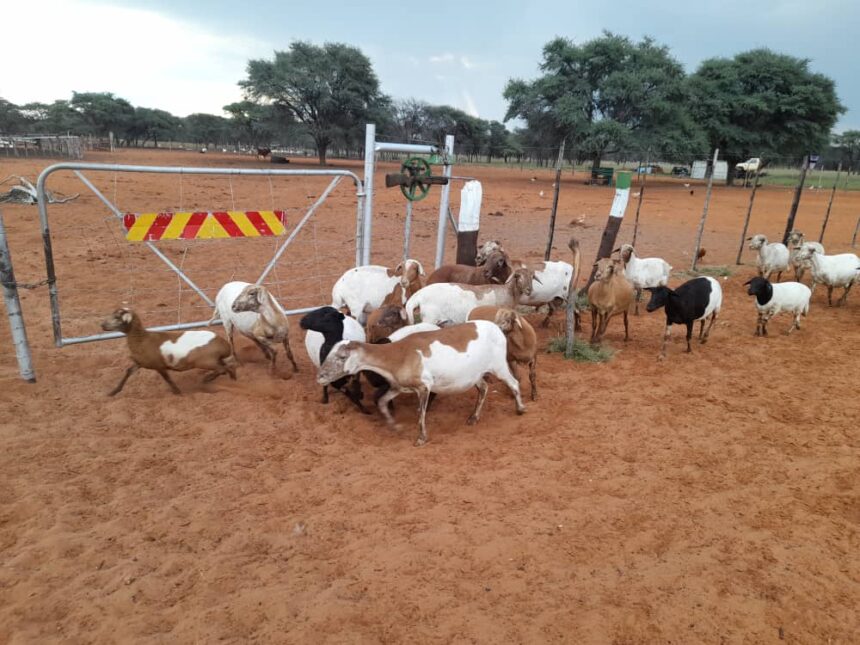Kakunamuua Kahiha never knew that one day he would be a stud breeder of his own herd of sheep. Growing up, sheep rearing was a favourite pastime, and one in which he excelled. At the time, the family farmed with a mixed breed of Damara, Dorper and Van Rooy sheep – mainly for meat.
As he traces his footsteps to the tiny village of Otjomukona, neatly tucked away in the Aminuis constituency of the Omaheke region, Kahiha cannot help but nod at his journey thus far.
Five years ago, he embarked on his journey as a stud breeder of the Meatmaster sheep – a breed that is highly revered for its ease of lambing, fertility and great motherly instincts.
“We bought our first Meatmaster ram from stud breeder Jannie de Villiers from Grunau in southern Namibia, and some eight ewes for breeding. That was the beginning of the journey we share today,” he proudly stated.
Since most of the family flock consisted of mixed breeds, a few more crosses were required over the years to make sure the flock meets the standards of a pure Meatmaster breed.
It would take him until 2019 to achieve the results he wanted in his flock, upon which he registered with the Meatmaster’s Association as stud breeder. Following this exercise, it was vital that he keeps improving the quality and standards of his herd by introducing better rams in the flock.
“I acquired rams from one of the biggest breeders of the Meatmaster, Bones Nell from Gochas in the Stampriet area. One of the rams was sired by the well-known Meatmaster ram, Smokey, one of the biggest valued sires of the Meatmaster ram in South Africa, and his son is my current stud sire in our flock,” he added.
Kahiha said he chose the Meatmaster breed because of some of its best traits such as low input costs, high resistances to parasites, few abnormalities and few problems with bloating.
“The Meatmaster has great herd instinct, which makes it best for shepherding systems. It will always stick with the herd, and will seldom wander off on its own. That is one of its best traits, and it means they are most likely to return home in the evenings from a day of grazing,” he noted.
One of the most common predators in the area where Kahiha farms is the black-backed jackal, which causes huge small stock losses daily for farmers. To keep it at bay, he introduced a stern routine of shepherding and looking after the livestock, which has so far proven successful.
His biggest challenge, however, is holding stud animals in a communal area.
“It is not easy at all to farm with stud animals in communal areas, but we try by different means to make sure the operation becomes successful. We do this through the fencing off of smaller camps for grazing and lambing purposes, and also to make sure the animals do not mix with commercial breeds.
Kahiha said he continuously draw from the wisdom of more established farmers in the area such as Vaughn Komungondo, Unjakuu Tjimbundu, Kenneth Nguvauva, Charlie Ndukireepo, Tolly Kandjii, Tjivii Tjombe and Kauu Marenga, whom he frequently visit for advice and tips on farming.
He said farming is a revolving sector, and one can never have enough information, skills and expertise on everything, hence the need to constantly keep in touch with those who had come before you.
Kahiha then implored young people who are jobless in the city and towns to seriously consider going back to their villages and taking up small-scale farming.
“Nothing is impossible in farming. It might be hard to find a job in the city, but you can create your own wealth and carve a future for yourself by seriously taking on farming. Not as a hobby, like some people do, but as a real business. Just make sure you buy the right type of animals and from the right type of breeders too, then you are set to go,” he advised.
-tjatindi@gmail.com


